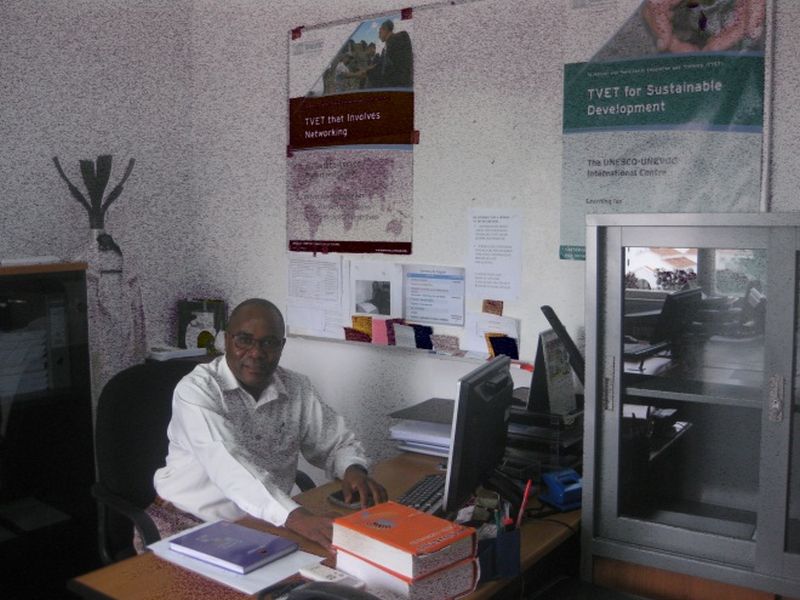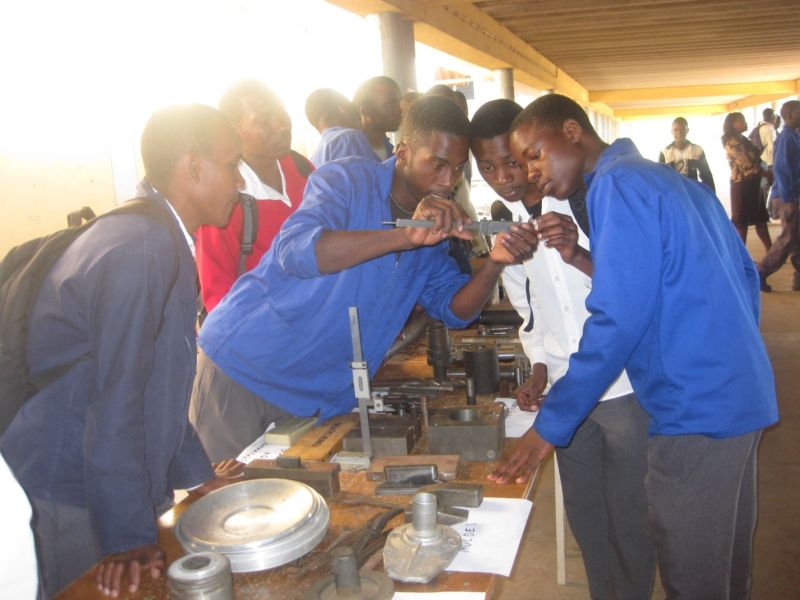
The UNESCO-UNEVOC International Centre: Who We Are | What We Do | Working With Us | Get in Touch
The UNEVOC Network: Learn About the Network | UNEVOC Network Directory
For Members: UNEVOC Centre Dashboard
Thematic Areas: Inclusion and Youth | Digital Transformation | Private Sector Engagement | SDGs and Greening TVET
Our Key Programmes & Projects: BILT: Bridging Innovation and Learning in TVET | Building TVET resilience | TVET Leadership Programme | WYSD: World Youth Skills Day
Past Activities: COVID-19 response | i-hubs project | TVET Global Forums | Virtual Conferences | YEM Knowledge Portal
Our Services & Resources: Publications | TVET Forum | TVET Country Profiles | TVETipedia Glossary | Innovative and Promising Practices | Toolkits for TVET Providers | Entrepreneurial Learning Guide
Events: Major TVET Events | UNEVOC Network News

The National Directorate for Professional Technical Education (DINET) is one of the Ministry departments that is responsible for Professional Technical Education (PTE) across Mozambique. DINET has been a UNEVOC’s Network member since 1999, and works in the field of Technical and Vocational Education (TVET) particularly in policy making and curriculum design. As a Network member, DINET has been actively involved in the promotion, transformation and scaling up of TVET as recommended by the third TVET congress in Shanghai.
Mr Manuel Caetano, focal point of the UNEVOC Centre in Mozambique, spoke to UNESCO-UNEVOC about the work of the Directorate.
What has been the biggest benefit of being a UNEVOC Centre?
“The international sharing of good practices, innovation and expertise among UN Member States has been the biggest benefit of being a UNEVOC Centre. The virtual conferences organized by UNESCO-UNEVOC bring valuable interactions among TVET experts and helps understanding what is really happening in the world of TVET. The UNEVOC Network has made it possible for us to share experiences with others, and discuss issues of common relevance. And of course, the range of publications and other resources have helped a great deal too.”

What has the UNEVOC Centre been up to this year?
“We participated in the conference held in Gaborone, Botswana, organized by UNESCO-UNEVOC in cooperation with the Botswana Qualifications Authority. The conference discussed youth transitions and network consolidation, which provided a platform for regional and international expertise on school-to-work transitions and regional challenges in both the formal and informal sector.”
Would you like to see your UNEVOC Centre featured here? Please contact us at unevoc(at)unesco.org for more information.
This interview is part of the UNEVOC Bulletin, the newsletter of the UNESCO-UNEVOC International Centre. To read the Bulletin, please click here,and to subscribe to the Bulletin, please fill out this form.